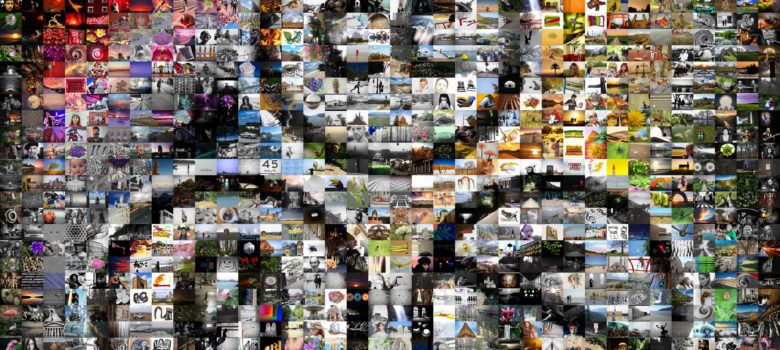The government launched its copyright review earlier this week with a Parliamentary motion to send the review to the Standing Committee on Industry, Science and Technology. I wrote a preview of some of the likely issues, noting the efforts of lobby groups to restrict fair dealing, extend the term of copyright, and target intermediary liability. Yet the letter from Ministers Navdeep Bains and Melanie Joly to committee chair Dan Ruimy, which should be posted online shortly, confirms that the government appreciates the competing perspectives on copyright and the limits of what the law can (or should) do.
The letter identifies three specific questions to be answered:
- How can we ensure that the Copyright Act functions efficiently to foster a marketplace that is transparent, promotes innovation and access for users, and supports creators in getting fair market value for their copyrighted content?
- How can we ensure that the copyright framework continues to function in an environment of constant change in technology and business possibilities?
- Finally, how can our domestic regime position Canadian creators, users, and innovators to compete on and harness the full potential of the global stage?
Each question works to ensure that the interests of creators and users are reflected and will form part of the final report, frequently referencing creativity and innovation together. Indeed, the diversity of interests arises throughout the framing of the letter. For example, in discussing the role of copyright, the Ministers state the law “should ensure creators receive fair and transparent remuneration and that users benefit from a public domain.” References to fair and transparent remuneration (which implicates both payment models and copyright collective transparency) is unsurprising but governments have not commonly highlighted the benefits of the public domain.
Identifying the differing stakeholders and issues similarly strives for balance:
This diversity of viewpoints is because copyright affects a wide range of industries, works, and uses: from telecom and tech companies, to scientific institutions, and academia, from photographs, music, and books, to augmented reality content; and from museums, art galleries, and brick and mortar stores, to machine-readable data, and beyond.
The government takes note of how users are increasingly creators themselves, with implications for copyright flexibility and open source models:
As users are increasingly enabled to become creators themselves, interactions with copyright have become even more ubiquitous, leading some to suggest current copyright rules need greater adaptability to new uses and formats. Private and public initiatives based on open source and open access have multiplied.
It is also heartening to see that the government recognizes the limits of copyright law:
Market disruption has often driven copyright reform. We suspect that disruption is now our constant state. Hence, we would be well-served to aim for a marketplace framework that functions well in the current environment, but that also can stand the test of time. We respectfully suggest that the Copyright Act itself might not be the most effective tool to address all of the concerns stemming from recent disruptions. For example, issues like the integrity of content metadata, better tracking and information of copyright activity, simpler licensing systems, and the importance of transparency for all players in the system, may reach beyond the scope of the legislation itself.
This perspective will become important when sectors facing disruption identify copyright as a mechanism to address competition challenges.
Finally, the letter also makes clear that the Industry Committee is the lead committee that will deliver the report on copyright review. The role of the Standing Committee on Canadian Heritage is seemingly still to be determined, with the sole reference stating:
Given that the Copyright Act is a key piece of the creative marketplace legislative framework, we encourage you to tap into the expertise and informed perspectives of the Standing Committee on Canadian Heritage throughout this review. The scope of issues related to copyright is broad and we feel that innovative mechanisms – such as special joint sessions or deep-dive studies on particular subject matters – could ensure that all relevant policy considerations are accounted for in your final report.
As I noted earlier this week, the review promises to run for much of 2018 and ultimately serve as key document for future reform efforts.








It is time that ” fair market value” be reasonably evaluated in the larger perspective. What is fair about continuing to pay someone for a service long after their death? No other industry commands a government regulated monopoly that forces consumers to continually pay for services generated at no additional cost to the producer?
Across the country we have deemed that a reasonable compensation for services should be in the $10-$15/hr range, according to minimum wage. The median household income in Canada is around $70,000/yr, which typically includes two earners.
Those seem like very good starting points for evaluating a FAIR market value for Intellectual properties.
Hey there! Quick question that’s entirely off topic.
Do you know how to make your site mobile friendly? My site looks weird when viewing from my iphone.
I’m trying to find a theme or plugin that might be able to correct this issue.
If you have any recommendations, please share.
Cheers!
Interesting article regarding copyright. How would patents be affected as they are very different?
Pingback: Is Copyright Term Extension Finally Done? – Creative Commons | CENSORED.TODAY
Pingback: Is Copyright Term Extension Finally Done? – Creative Commons | CENSORED.TODAY | #HACKMYSTACK